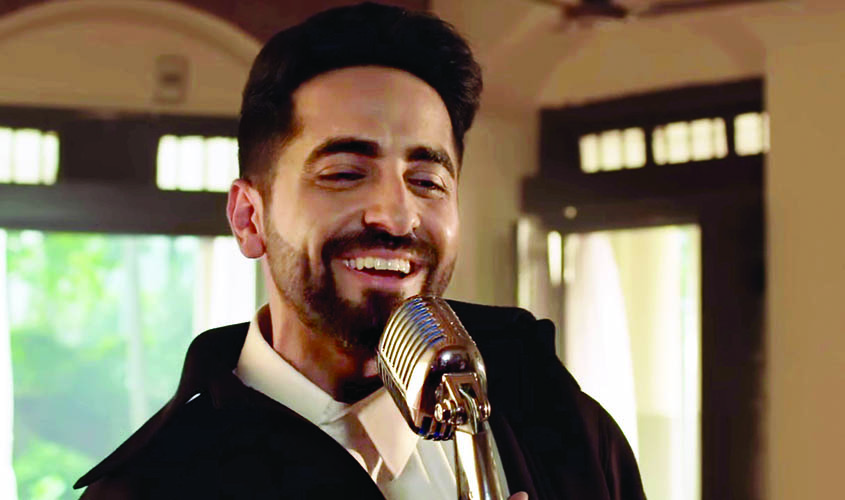Andhadhun opens with a cryptic text card that reads: “What is life? It depends on the liver.” At first it appears to be a red herring but much later in the film it suddenly begins to make sense. That’s when we truly start to fathom what we are really dealing with. Sriram Raghavan is known for such clever machinations which can not only catch an unsuspecting eye off guard but are equally capable of outfoxing a keen-eyed viewer. Around the midway mark in Andhadhun, a person gets murdered in cold blood and Raghavan overlays the entire sequence with Beethoven’s fifth symphony which provides a sense of calm in this great moment of chaos. And if that’s not enough, he brilliantly follows it up with a brilliant dissolve transition with the fifth symphony still playing in the background as if celebrating the murderer’s triumph.
One of the biggest attractions of the films of Sriram Raghavan is the unrelenting mood that stylistically oozes out of each and every frame. This unmistakable feature of the work allows the viewer to recognize its creator almost instantly. Often right at the starting of the film, Raghavan serves us with a quote or reference as a harbinger of what’s coming next. This serves two purposes. First, it makes us anticipate things even before we are presented with the characters and their world. Second, it allows Raghavan to pay homages to his favorite writers/filmmakers who have helped establish the rules governing the suspense and thriller genre.
Few filmmakers in cinema today can orchestrate such complex camera movements to convey the simplest of the ideas like Raghavan can and that’s precisely why even when his scripts fail his camera lens still succeeds in capturing the right emotions. But when the two are in harmony it results in pure magic. Perhaps, that’s what separates a cinematic feast like Johnny Gaddaar from an average outing like Agent Vinod which despite its follies isn’t completely devoid of moments of brilliance. Interestingly, Andhadhun falls somewhere between these two films in terms of storytelling brilliance. While it’s certainly superior to Agent Vinod, it pales in comparison to Johnny Gaddaar. However, it is closer to the latter than the former. Andhadhun is certainly more polished and refined but it somewhere lacks the pulpy flavor of Johnny Gaddar.
Andhadhun nonetheless bears the stamp of a master filmmaker who understands his craft well. With age, Raghavan has certainly become cleverer but his childlike love for noirish elements is still pretty much intact as evident from the lingering presence of prying bystanders, cuckold husbands, coquettish wives, duplicitous cops, and morally ambiguous heroes in Andhadhun’s treacherous world. Ayushmann Khurrana is a revelation as the blind pianist and Anil Dhawan’s casting as a ‘70s matinée idol is nothing short of a masterstroke. While Tabu delivers one of her career best performances, Radhika Apte does a decent job essaying a part with limited scope. The supporting cast is well led by Raghavan regular Zakir Hussain. Despite the occasional hiccups, Andhadhun still manages to keep the viewer guessing until the final

